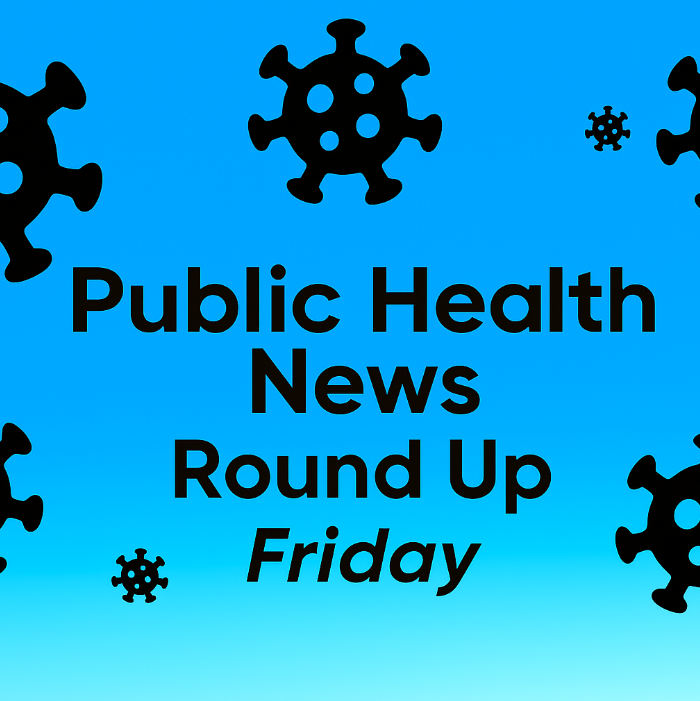
Next Week in Public Health, July 18, 2025
Hello.
I know it’s tempting to chase the latest HHS news, and try to unpack what it means (e.g., Top staffers dismissed, the HHS Facebook page is meming Joe Biden? for some reason.)
My ongoing theory is that these individuals are primarily seeking to consolidate wealth and power. That’s it. The health angle is merely a means to promote their belief system across an entire industry and population. On the surface, so many of the idea seem… OK? Like, who wouldn’t want cleaner and healthier food? As always, try to follow the money and power, and ask who would benefit from such an arrangement.
Enough tin foil, here’s what’s rising in the research this week.

And our top news trends.

Rising News Stories
White House finds Calif. violated Title IX by allowing trans athletes in school sports
U.S. Rep. Robert Garcia and other Democrats are questioning the Trump-Vance administration’s cuts to HIV-related programs, as outlined in a letter to U.S. Health Secretary Robert F. Kennedy Jr. The letter criticizes the dismantling of HIV prevention efforts, arguing these reductions could lead to increased infections and deaths both domestically and internationally. These actions are considered a major setback in the fight against HIV/AIDS, threatening the progress made over recent decades and potentially undermining ambitious goals to end the epidemic.
Top 10 Things to Know About Your Health Costs Right Now
Significant changes in health policy are set to impact health insurance coverage, costs, and access in 2025 and beyond. A notable federal law signed on July 4th introduces shifts such as Medicaid modifications, with work or school requirements for some recipients by 2027, and reduced federal funding, which could force states to adjust their Medicaid offerings. Additionally, changes in Medicare medication cost limits, insurance enrollment processes, and new eligibility requirements for veterans’ benefits highlight the evolving landscape and its potential effects on the healthcare affordability and accessibility of millions of Americans.
The USDA Wouldn’t Let Her Give Up Her House When She Couldn’t Pay Her Mortgage. Instead, It Crushed Her With Debt.
A ProPublica and Bangor Daily News investigation has uncovered significant delays in the USDA’s handling of foreclosures for homes purchased through the Section 502 Direct Loan Program, primarily affecting underserved rural homeowners in Maine. The delays have led to considerable financial burdens on borrowers due to accumulated interest and fees, undermining the program’s intent to support affordable homeownership. Calls for increased transparency and the need for better monitoring have been raised, emphasizing the detrimental impact on both the borrowers and government resources.

